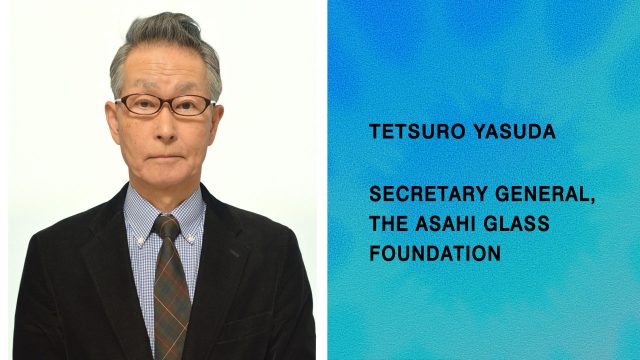Focusing Only On GDP Won’t Lead To Sustained Growth: Tetsuro Yasuda, Secretary General, The Asahi Glass Foundation
The Asahi Glass Foundation was set up in celebration of the twenty-fifth year of operation of Asahi Glass Co., Ltd (AGC) a Japanese global glass manufacturing company. Established in 1933, the foundation focuses on research grants and recognition of efforts for environmental sustainability. Blue Planet Prize, an annual award constituted by the Asahi Glass Foundation commemorates individuals and organisations contributing towards solving environmental problems.
Tetsuro Yasuda, Secretary General, The Asahi Glass Foundation talks to The CSR Journal about the organisation and global CSR scenario.
Pavan Sukhdev, an Indian environmental economist won the Blue Planet Prize, 2016. Please tell us about the Blue Planet Prize and the objective behind it.
During early years of industrialisation pollution was often neglected. Realising the need to make sure that industrialisation does not lead to devastation of the world; the first Blue Planet Prize was awarded in 1992 to encourage efforts for a sustainable environment. This recognition not only motivates the individual but also influences society to take notice of their work.
The prize is an effort to give recognition and support to people & organisations who work towards innovation in research and technology in the environmental sector. We believe the power of science alone cannot influence and motivate people to work towards environment sustainability; it requires consensus of the majority. Till date three Indians have won the annual Blue Planet Prize including Pavan Sukhdev in 2016 for his work in green economics. Each winner gets 25 to 50 million yen (approx Rs 1.4 – 2.8 crore) that they use for their environmental projects, initiatives and research.
India is currently seen as one of the most promising economies. What is your opinion about India’s economic growth and its policies on sustainable development?
India has a tremendous opportunity if the focus on growth is made in a sustainable manner. Focusing only on GDP will not lead to a sustained holistic growth. Sustainability in terms of ecosystem is necessary. A balance should be maintained between growth and environment. We need to think about our future generations when we undertake any long-term planning.
In India, I see strong local bonding in rural communities. Unfortunately, the same is missing in urban cities. Similar bonding and will for holistic growth in urban areas will boost sustainable growth.
India is the only country to have mandated CSR expenditure. How do you perceive this mandatory CSR spending as?
The two percent target is a good approach but many corporate managers are focussing on meeting targets instead of adding value. There should be a more sustainable approach towards social responsibility programmes and not just making it a mere target to achieve.
Companies normally spend their CSR funds either through their CSR wings or their foundations. In both cases if the vision is clear the outcome is strong. There should be a clear focus on understanding issues and making a measured impact. The value chain of impact created should be accounted for. However, as many companies follow old policies it is difficult to modernise their rigid systems and measure the impact.
Efforts of many environmentalists are often overlooked. What can be done to ensure that their efforts do not go in vain?
The biggest challenge is to simplify their work and communicate about its knowledge in an uncomplicated form to the masses. A major problem is that most of the researches are limited to theory and groundwork is difficult because of the existing rigid mindset in the society. New solutions in science and advancement in technology are often met with hostility leading to difficulty in implementation.
I believe if the economic rationale behind healthy environment is explained well, it will be easier to influence people about sustainability. Efforts from business houses and policymakers will help in spreading this idea and getting acceptance among the people for a sustainable growth.
Thank you for reading the interview until the very end. We appreciate the time you have given us. In addition, your thoughts and inputs will genuinely make a difference to us. Please do drop in a line and help us do better.
Regards,
The CSR Journal Team













